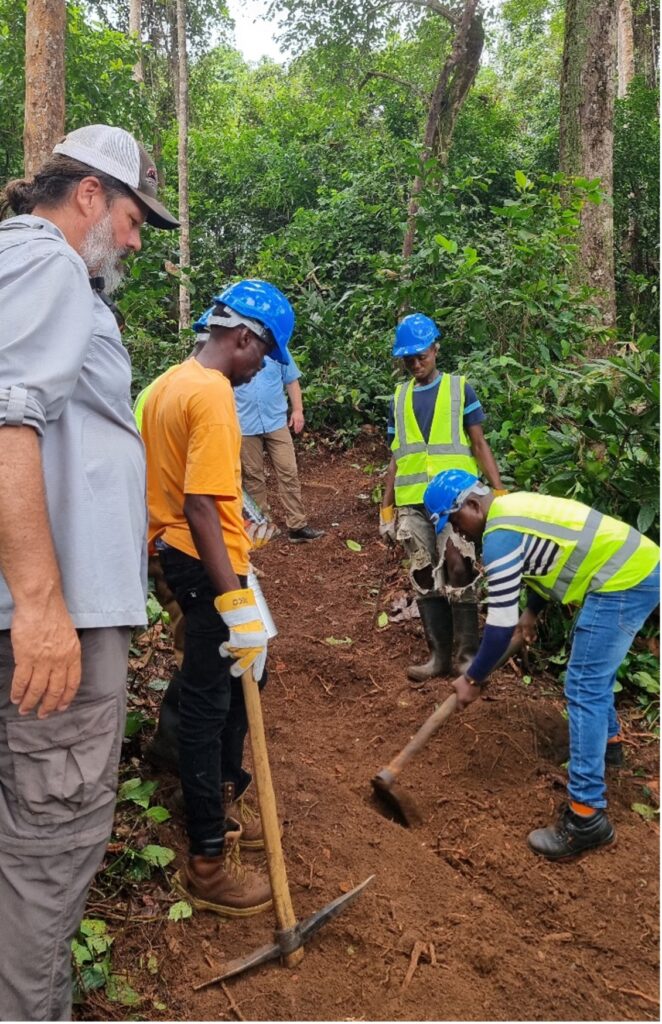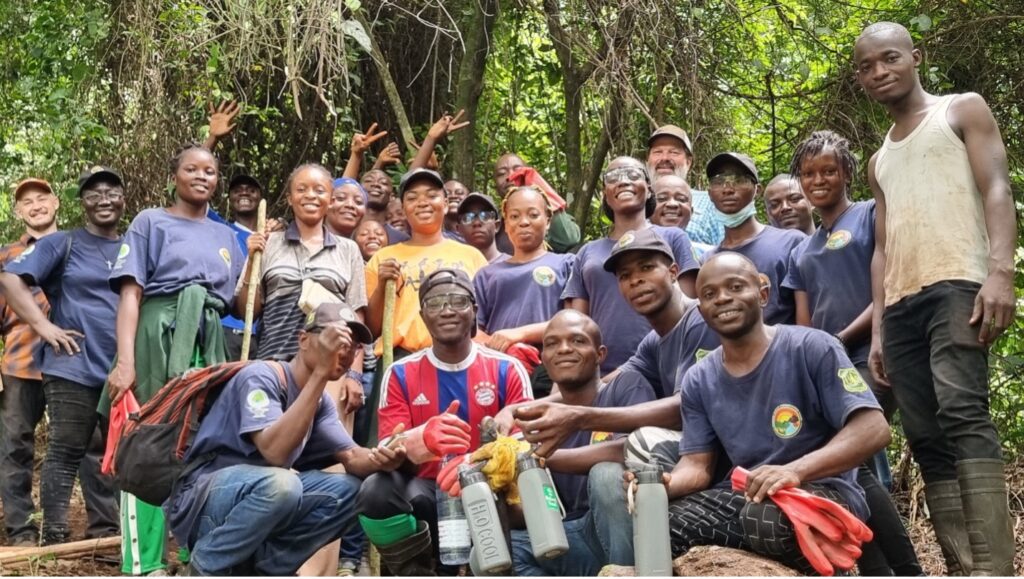The International Programs Office of the U.S. Forest Service has completed three of ten identified hiking trail circuits in Liberia and has trained 55 Liberians and Guineans in trail building. The trail building and training activities are part of the Forest Service’s broader efforts to support ecotourism development and promote nature-based tourism in Liberia’s protected areas, including Lake Piso Multiple-Use Reserve (LPMUR) and the East Nimba Nature Reserve (ENNR).
The conservation of Liberia’s vital forests and biodiversity relies on ensuring these resources are valued by forest-dependent communities and government decision-makers. Nature-based tourism, or ecotourism, links conservation with revenue generation for local communities, fostering cultural and biological stewardship. Despite being in its infancy, Liberia’s tourism sector holds great potential due to its unique biodiversity, intact forests, undeveloped coastline, and local culture, and high-value ecotourism experiences will benefit rural areas.

Photo credit: USDA Forest Service Ben Freeman
Since 2019, with funding from the U.S. Agency for International Development (USAID) and in close collaboration with the Liberian Forestry Development Authority (FDA) and the Environmental Protection Agency, the Forest Service has supported initiatives to assess ecotourism potential, identify needed investments, and propose actions to advance nature-based tourism in Liberia. In 2020, the Forest Service and USAID published the “Ecotourism Opportunities in the Mount Nimba Landscape of Liberia” report, identifying key tourism assets and recommending investments in circuits, lodging, capacity building, and policy enhancements.
Building on these initial assessments, several ecotourism investments are moving from planning to development, including the USAID-funded West Africa Trade and Investment Hub (Trade Hub) projects such as the Warkolor Jungle Lodge and Reserve and the Nimba EcoLodge and Reserve. These projects, managed by two Liberian businesses—Libassa and Jos Travel & Tours—are demonstrating the feasibility of ecotourism in Liberia by providing proof-of-concept for investors and communities.
In support of these newly launched ecolodges, a five-member Forest Service technical mission, including two trail experts, visited the Warkolor Forest in the LPMUR, Robertsport, Grand Cape Mount County, a coastal town recognized for its beautiful beaches and surfing potential in western Liberia and in ENNR, Nimba County, a cradle of biological diversity in northern Liberia. Over the last five years, Forest Service-led technical support has focused on developing trail-based circuits, identifying interpretation opportunities, and addressing capacity building needs tailored to each site.
From May 14-17 and June 17-24, a trail crew of 16 individuals comprising eight community forest guards, two interns from the Forestry Training Institute (FTI), and one supervisor with background in civil engineering received training in trail design, route selection, and construction. During this period, they built two trail circuits covering about 2 miles in Warkolor Forest to enhance the experiences of visitors at the ecolodge.
From May 18-24, the Forest Service technical team moved to ENNR to continue trail-building training with the FDA and local communities. This session included 17 participants: 13 community forest guards, two FTI interns, two FDA staff and one trail crew supervisor. The ENNR trail crew built a trail circuit about a mile long near the Nimba Ecolodge to enhance visitors’ experiences. In addition, 23 Guineans from a Forest Service-supported Youth Conservation Corps benefited from the training in Nimba.

In total, 55 people (32 Liberians, 23 Guineans) were trained in trail building, including two civil engineers trained as supervisors.
The trained Liberian trail crews will play a significant role in ongoing trail-building efforts in Liberia as the Forest Service anticipates extending its support to the iterative design and implementation of trail circuits, interpretative materials (e.g., brochures, guides, signage, maps), and tour guide training to complement planned ecotourism infrastructure to other landscapes like the Marshall Wetlands and Sapo National Park.